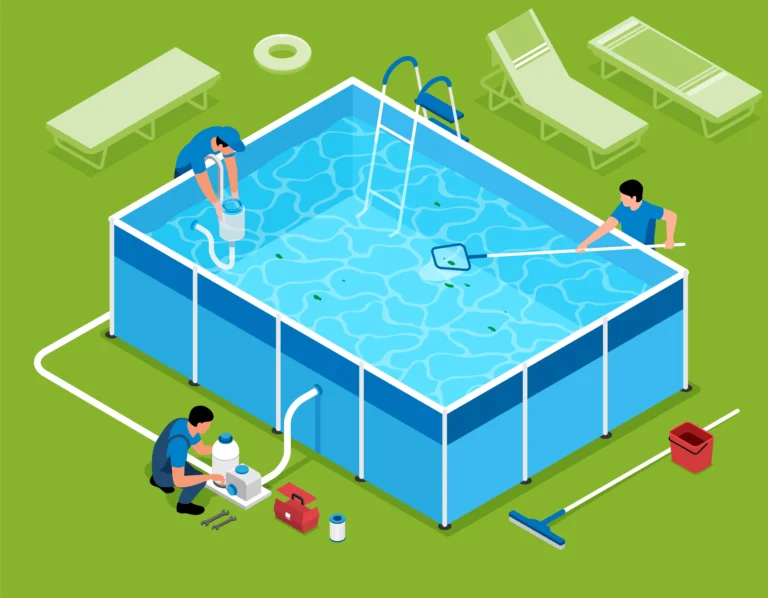Introduction
A swimming pool is often seen as a symbol of leisure, relaxation, and fun. However, behind its sparkling blue water lies a serious responsibility — maintaining cleanliness. Regular pool cleaning is not just about keeping the water visually appealing; it’s a critical aspect of ensuring health, safety, and the structural longevity of the pool. Neglecting pool maintenance can lead to waterborne illnesses, damaged equipment, and costly repairs. This article explores why cleaning a swimming pool is essential and how it contributes to both enjoyment and safety.
1. Protecting Swimmers’ Health
Preventing Bacteria and Algae Growth
Pool water, if left uncleaned, becomes a breeding ground for harmful microorganisms such as E. coli, Giardia, and Cryptosporidium. These bacteria and parasites can cause skin irritations, ear infections, or gastrointestinal illnesses. Regular chlorination, filtration, and pH balancing help keep these pathogens under control.
Algae, too, can quickly form on pool walls and surfaces if cleaning lapses. Beyond making the pool slippery and unattractive, algae harbor bacteria and interfere with chlorine effectiveness. Consistent brushing and chemical treatment are therefore crucial to maintain hygienic water conditions.
Controlling Chemical Balance
A clean pool isn’t just about removing debris — it’s also about maintaining chemical harmony. The ideal pH range (7.2–7.8) ensures that chlorine works efficiently and doesn’t irritate swimmers’ eyes or skin. Regular testing and chemical balancing protect both people and the pool’s surfaces from corrosion or scale buildup.
2. Preserving Pool Equipment and Structure
Preventing Damage and Costly Repairs
Debris such as leaves, dirt, and insects can clog filters and strain pumps, reducing their lifespan. When pool equipment works harder than necessary, it consumes more energy and wears out faster. Regular vacuuming, skimming, and backwashing the filter help keep systems running efficiently.
Over time, neglecting pool maintenance can lead to staining, calcium buildup, or cracking in tiles and liners. Routine cleaning preserves the pool’s aesthetics and structural integrity — saving owners from expensive restoration work down the line.
Extending the Lifespan of the Pool
Just as regular oil changes extend a car’s life, consistent pool cleaning ensures longevity. When the water chemistry and physical structure are well-maintained, a swimming pool can last decades with minimal major repairs. This protects the initial investment and sustains long-term enjoyment.
3. Enhancing Enjoyment and Aesthetics
No one wants to swim in murky, debris-filled water. A clean pool enhances the entire swimming experience by keeping the water clear, inviting, and safe. Crystal-clear water reflects light beautifully, creating a refreshing atmosphere for family and guests.
Clean surroundings — including the pool deck and waterline — also contribute to the overall appeal of a home or facility. For hotels, resorts, or public pools, cleanliness directly influences guest satisfaction and reputation.
4. Supporting Environmental Responsibility
Modern pool care isn’t just about hygiene; it’s also about sustainability. Clean pools require less chemical shock treatment and water replacement. By maintaining proper filtration and cleanliness, pool owners can conserve water and reduce chemical waste. Using eco-friendly cleaning products and automated pool cleaners can further minimize environmental impact while maintaining pristine water quality.
Conclusion
Keeping a swimming pool clean is far more than a cosmetic chore — it’s a vital practice that safeguards health, protects equipment, and ensures lasting enjoyment. Regular cleaning, balanced chemicals, and efficient filtration not only prevent costly issues but also promote a safe and inviting swimming environment. Whether for private homeowners or commercial facilities, prioritizing pool cleanliness is an investment in health, safety, and sustainability.

